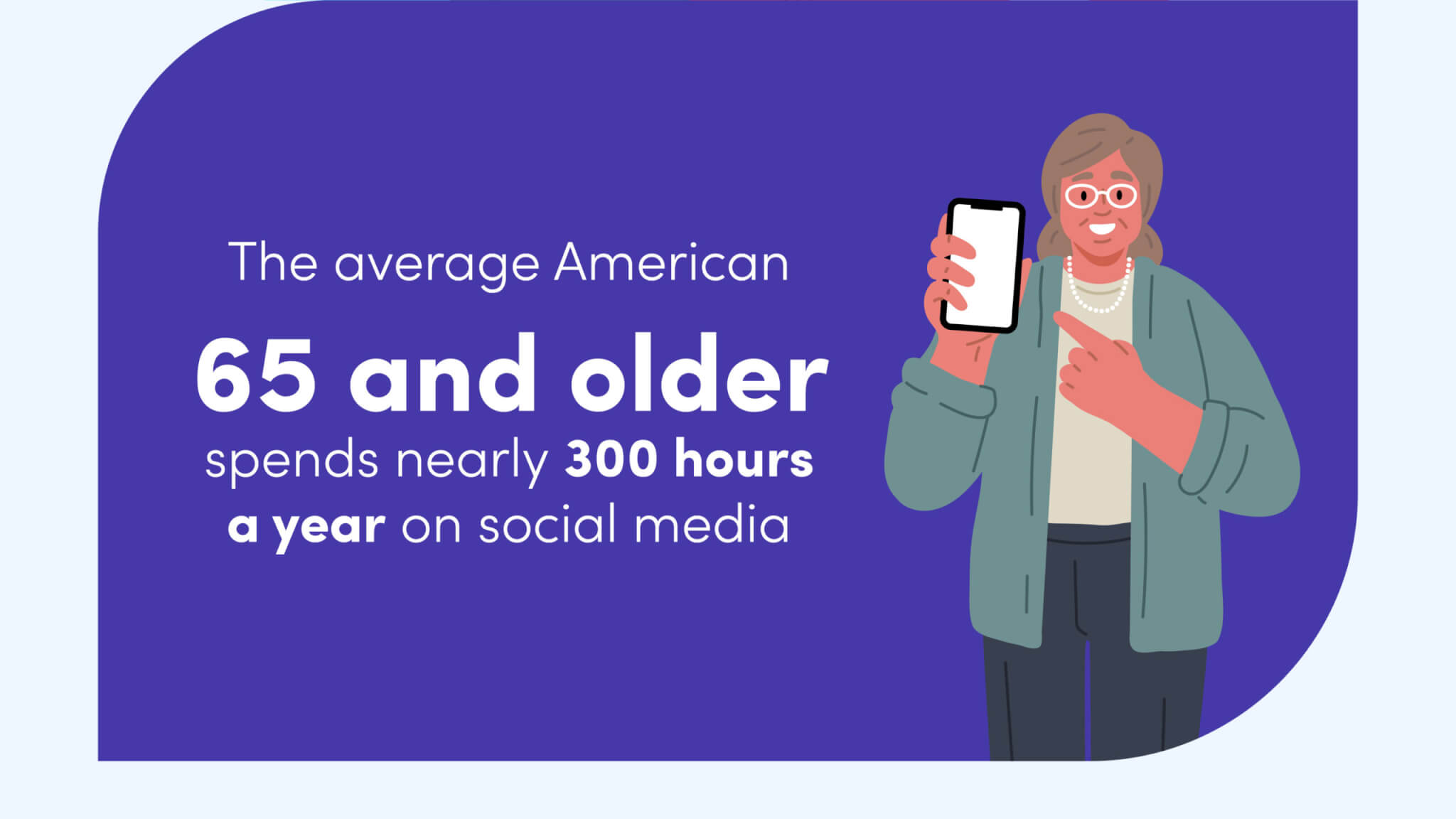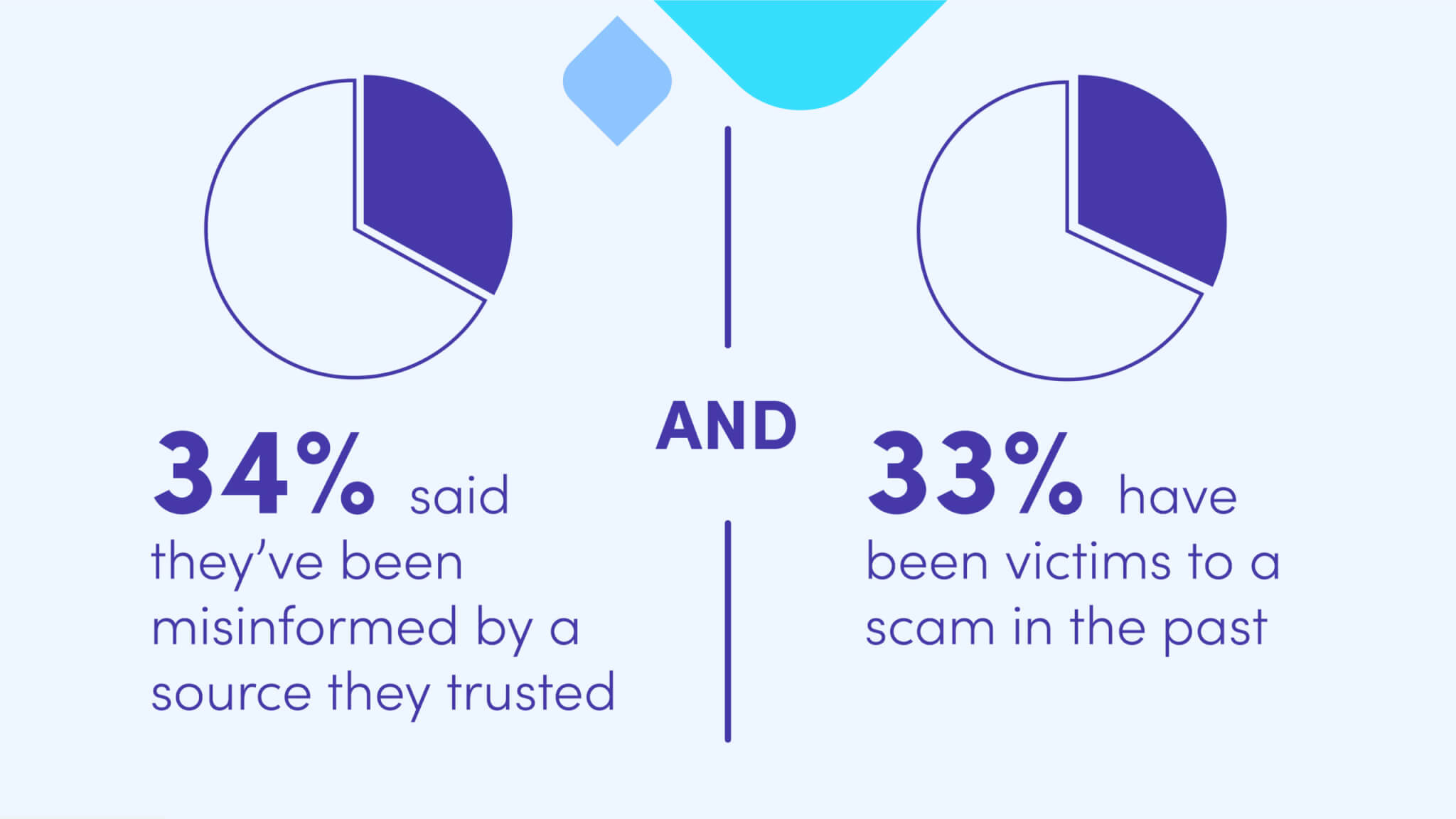New survey shows that while seniors aren’t spending as much time online as younger generations, they may be at higher risk of falling for online scams and predators.
NEW YORK — It isn’t just for young people anymore — the average American 65 and older spends nearly 300 hours a year on social media, according to new research. While that might sound like a lot, breaking it down by the day shows us that older folks do a pretty darn tootin’ good job of staying logged off. A survey of 2,000 seniors who use social media looked at their usage and habits and finds that they spend an average of just 47 minutes daily on these platforms.
So where are they logging on the most? Facebook is the clear preference for seniors (75%), with YouTube (28%), and Instagram (10%) the other popular networks.
While half of respondents use social media to kill time (54%), others reconnect with friends (61%) and stay in touch with other loved ones (58%). Nearly four in 10 have even made a new friend on social media (39%).
It has proved to be useful in other ways, too, with a majority saying they’ve learned something new from social media that was helpful in their lives (63%). Thirty-five percent of seniors see these platforms as a reliable source for keeping up with news and another 32 percent use it to seek out information.
The survey, conducted by OnePoll and commissioned by ClearMatch Medicare, finds that seniors are most interested in health-related content online (46%). That was followed closely by food-related content (43%), entertainment (36%), and politics (33%).

Seniors shouldn’t believe everything they read on social media
Thankfully, 60 percent recognize that social media is only a trustworthy source of information some of the time. Conversely, nearly one in five are under the impression that it’s trustworthy most of the time (19%), and a similar percentage admit they don’t have a great understanding of how to safely navigate these platforms (20%).
When it comes to news, the average senior polled believes that only 43 percent of the information they see on social media is true. Two-thirds of respondents believe that they’re stigmatized for easily falling for misinformation (67%) — and 36 percent would have to agree.
“There has been a growing intricacy in scams, making them harder to detect in the last decade,” says CEO of ClearMatch Medicare, a division of HealthPlanOne Ben Pajak, in a statement. “Typically, these fraudulent schemes present themselves as overly appealing opportunities, promising freebies or unusually low-cost items. It’s important to exercise caution when encountering such offers and thoroughly scrutinize these opportunities before taking any action.”

In fact, 34 percent note they’ve been misinformed by a source they trusted and 33 percent have been victims to a scam in the past. Seniors have been most susceptible to scams most commonly online (66%) and on the phone (31%), with relation to money (36%), personal information (17%) and health (9%). And these respondents paid the price — losing an average of $2,700 to scams.
Would you recognize an online scam?
Thankfully, not everyone has been fooled. Even more seniors share that they’ve witnessed a scam on social media that they did not fall victim to (62%), especially related to health and medical care (24%). They point out that these scams included people pretending to be from a financial-based company (38%), offering “free” incentives for personal information (33%), and pretending to be from a healthcare company (22%).
Still, although they’ve avoided them in the past, one in nine admit they have no idea what to look for in a scam.
“Although everyone is susceptible to scams, no matter the age, seniors tend to be seen as an ‘easy target’ since many don’t know the ins-and-outs of the internet,” says vice president of sales at ClearMatch Medicare Jennifer Girdler. “Don’t be afraid to ask what your information will be used for and seek a second opinion from a trusted loved one before handing over any identifying data.”
Survey methodology:
This random double-opt-in survey of 2,000 Americans 65+ who use social media was commissioned by ClearMatch Medicare between August 2 and August 9, 2023. It was conducted by market research company OnePoll, whose team members are members of the Market Research Society and have corporate membership to the American Association for Public Opinion Research (AAPOR) and the European Society for Opinion and Marketing Research (ESOMAR).
